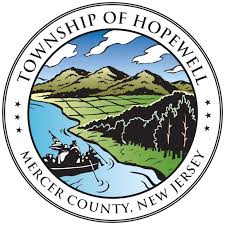Following two cases of Legionnaires’ disease reported in Hamilton Township, the Hopewell Township Health Department, Trenton Water Works and the New Jersey Department of Health are monitoring the situation.
Drinking water for Hopewell Township residents is served by Trenton Water Works (TWW).
No cases of Legionnaires’ disease have been identified among Hopewell Township residents, and no Legionella bacteria has been found in Hopewell Township water, according to the township.
“The Township Health Department is in regular contact with Trenton Water Works about the Legionella situation, and we appreciate their partnership in keeping the drinking water safe for our residents in their service area,” Hopewell Township Health Officer Dawn Marling said.
Legionnaires’ disease is a rare type of pneumonia that is caused by Legionella bacteria.
People cannot get Legionnaires’ disease by drinking water; it is caused by aspirating water or breathing in water vapor, according to a press release on Sept. 8.
Symptoms of Legionnaires’ disease are similar to those of COVID-19 and other respiratory ailments, such as cough, shortness of breath, fever, muscle aches, and headaches.
Because the cases of Legionnaires’ disease were found in the section of Hamilton Township that is served by TWW, they are actively sampling to determine the scope of Legionella bacteria in their water distribution service area.
TWW serves portions of Hopewell Township, including Brandon Farms, according to the township.
Water sampling to-date has not detected Legionella bacteria in Hopewell Township, according to the release.
“We would like to thank Trenton Water Works for proactively sampling the water in Hopewell Township to test for Legionella bacteria, and we are relieved by the negative results so far,” Mayor Courtney Peters-Manning said.
Routine sampling for Legionella occurs at the Stop & Shop on Denow Road, Stony Brook Elementary School, and the Brandon Farms Clubhouse.
“The health and safety of our residents is paramount, and we appreciate the ongoing vigilance to ensure that the difficult situation in Hamilton is remediated and contained,” she said. “Our hearts go out to everyone in Hamilton who has been impacted.”
Legionella bacteria is found naturally in freshwater environments, like lakes and streams. It can live and grow in pipes and in devices people use that require water, such as hot tubs and humidifiers.
Home air conditioners do not use water to produce cool air and are not a source of the bacteria. Breathing in water or water vapor can make people sick if the water contains Legionella, according to the township.
Most healthy people exposed to Legionella do not become sick.
However, people are at increased risk for infection if they are 50 years or older, especially if they smoke, have chronic lung disease, have a weakened immune system, or take medicines that weaken their immune system.
While Legionnaires’ disease is serious, it can be treated with antibiotics, according to a release.




